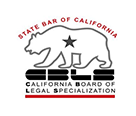Technology companies in California may be able to use O-1 visas to recruit foreign-born employees with new ideas and inventions. Historically, foreign nationals living in the United States have instigated a lot of innovation in the tech industry. If an employer is aware of a foreign-born person with incredible skills, it might want to consider petitioning for an O-1 visa.
O-1A visas are reserved for people with extraordinary ability in business, science, education or athletics. People who can show that they have extraordinary ability in the arts may qualify for O-1B visas. Foreign nationals = who would like to apply for an O-1A visa cannot self-petition unless they own a company that could serve as their sponsor.
If an applicant for an O-1A visa has received a major internationally recognized award such as a Nobel Prize, this evidence is enough to qualify them for the visa. Without a major award, applicants must show evidence that they have at least three qualifications from a list of eight possible choices. Some of the qualifications are receipt of a lesser internationally recognized award, authorship of scholarly articles, employment with a distinguished organization and major contributions to a specific field.
O-1 visas are intended for temporary stays in the U.S., but they may be extended if an employee needs to stay in the country for a longer period of time. An employer who would like to petition for a new O-1 visa or ask for an extension for an existing O-1 visa may want to work with an immigration attorney. If it is not possible for an individual to obtain an O-1 visa, an attorney may be able to help the employer to develop an alternative plan.




